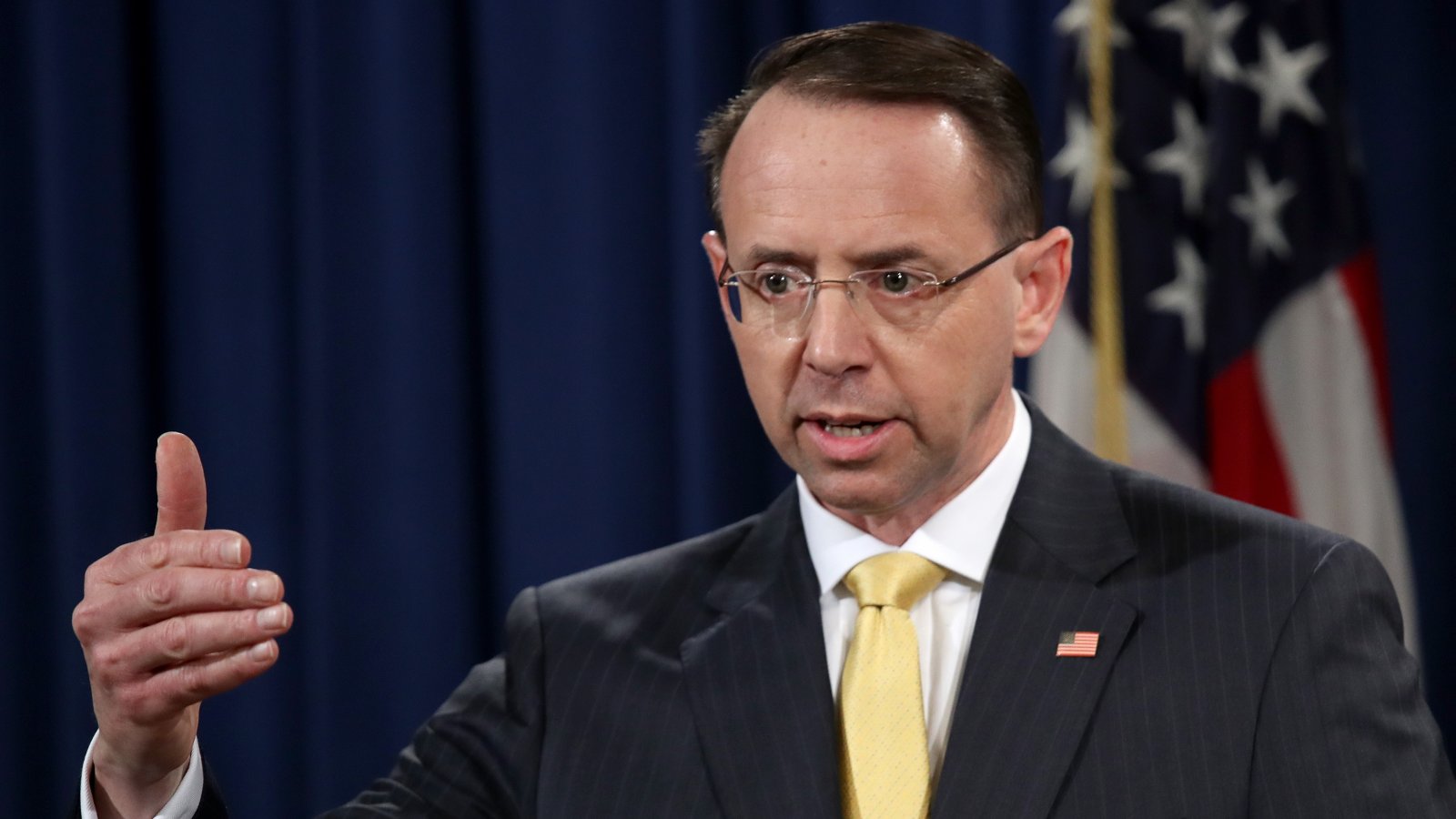
Special Counsel Robert Mueller's 37-page indictment against 13 Russian nationals and three Russian entities – announced Friday by Deputy Attorney General Rod Rosenstein – contains a lot of important detail about how the Russians meddled in the 2016 presidential election.
NYT:
At the height of the 2016 campaign, the effort employed more than 80 people, who used secure virtual private network connections to computer servers leased in the United States to hide the fact that they were in Russia. From there, they posed as American activists, emailing, advising and making payments to real Americans who were duped into believing that they were part of the same cause.
(...)
The scope of the operation was sweeping. The Russians assumed their fake identifies to communicate with campaign volunteers for Mr. Trump and grass-roots groups supporting his candidacy. They bought pro-Trump and anti-Clinton political advertisements on Facebook and other social media. They used an Instagram account to try to suppress turnout of minority voters and campaign for Ms. Stein, the Green Party candidate.
Even though the White House's official statement on the Mueller indictment claims "the Special Counsel’s investigation further indicates—that there was NO COLLUSION between the Trump campaign and Russia and that the outcome of the election was not changed or affected," that is not true.
Here is some of what Mueller's indictment does say:
CNBC:
• The so-called Internet Research Agency, a Russian corporate entity registered in July 2013, "sought, in part, to conduct what it called 'information warfare against the United States of America' through fictitious U.S. personas on social media platforms and other Internet-based media.'"
• The Internet Research Agency "focused on the U.S. population and conducted operations on social media platforms such as YouTube, Facebook, Instagram and Twitter."
• "By in or around May 2014, the organization's strategy included interfering with the 2016 U.S. presidential election, with the stated goal of 'spread[ing] distrust towards the candidates and the political system in general.'"
• The Russian entity "had a strategic goal to sow discord in the U.S. political system, including the 2016 U.S. presidential election. Defendants posted derogatory information about a number of candidates, and by early to mid-2016, Defendants' operations included supporting the presidential campaign of then-candidate Donald J. Trump ('Trump Campaign') and disparaging Hillary Clinton."
• The defendants sought disruption by staging events for and against Trump after the election ...
• The defendants attempted to discourage African-American turnout in the election ...
• The defendants allegedly stole Americans' identities to open online payment accounts ...
• They also allegedly used cryptocurrency exchanges to maintain their accounts ...
• The indictment describes Trump campaign officials who communicated with the Russians as "unwitting" in the defendants' plans: "Some defendants, posing as U.S. persons and without revealing their Russian association, communicated with unwitting individuals associated with the Trump Campaign and with other political activists to seek to coordinate political activities."
The Washington Post has a timeline of how the Internet Research Agency's operations unfolded.
Statement from the Press Secretary Regarding the Russia Indictments (White House)
More summaries:
Inside a 3-Year Russian Campaign to Influence U.S. Voters (NYT)
4 things we learned from the indictment of 13 Russians in the Mueller investigation (WaPo)
Takeaways from Robert Mueller's indictment of Russian nationals who meddled in presidential election (USA Today)
Key takeaways from the Russia indictment (Politico)
A caged Clinton and fake ‘woke blacks’: 9 striking findings from the Mueller indictment (Politico)
Timeline: How Russian trolls allegedly tried to throw the 2016 election to Trump (WaPo)
Here are some of the most important quotes from Mueller's indictment of Russians (CNBC)